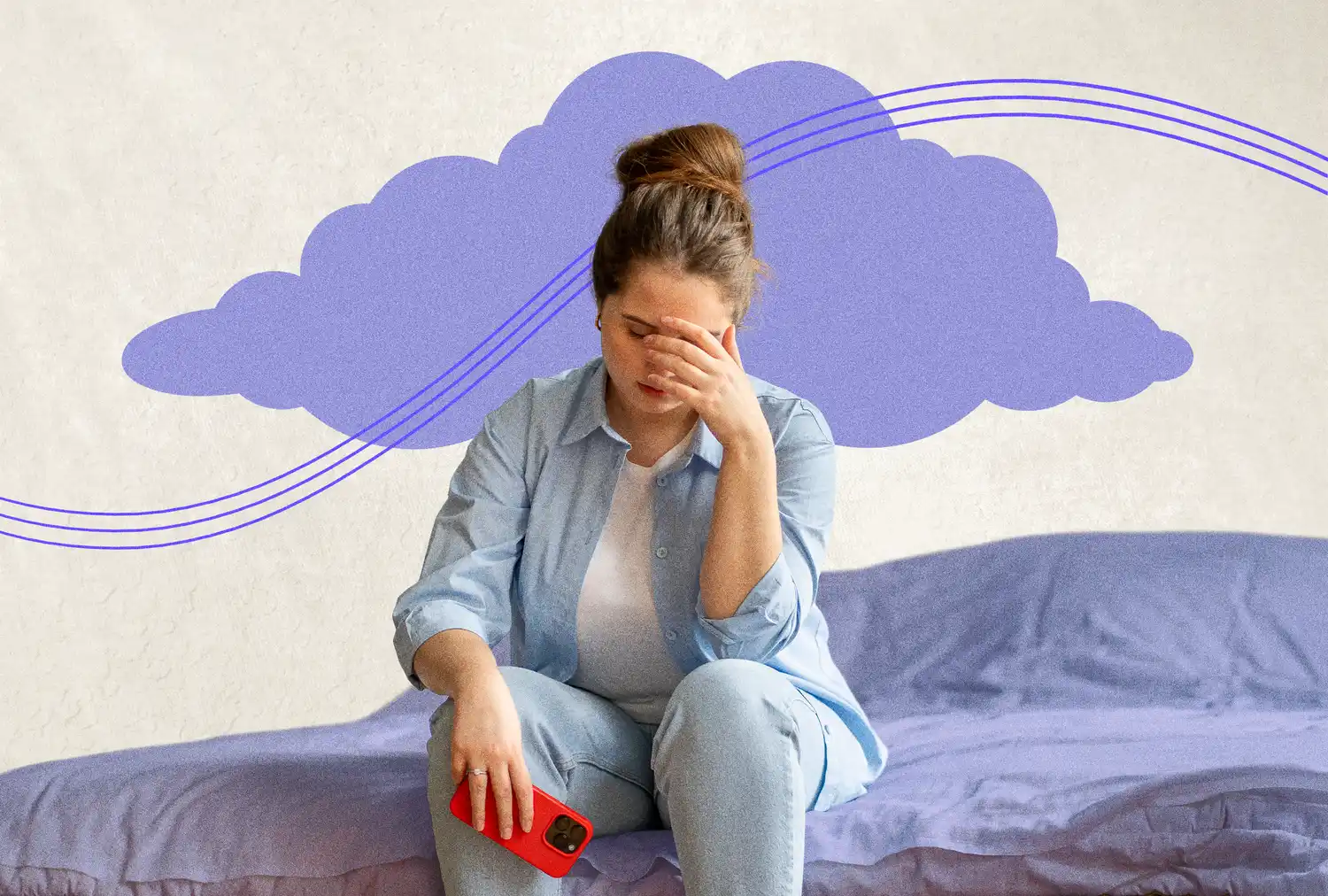Chamomile Tea for Sleep: My 7-Day Journey to Restful Nights
For many, the quest for truly restorative sleep feels like an endless battle. Racing thoughts, middle-of-the-night awakenings, and the unpredictable interruptions of family life can turn bedtime into a source of stress rather than solace. This personal account explores how drinking chamomile tea before bed for a week—here's affected my sleep, blending scientific insights with real-world experience to uncover the subtle yet significant shifts.
Like countless others, my relationship with sleep has been complicated. Even before the beautiful chaos of motherhood, falling asleep quickly or staying asleep through the night was a challenge. My mind, often buzzing with tasks and worries, frequently sabotaged my rest. The idea of reintroducing a calming evening ritual, specifically chamomile tea, felt like a hopeful step towards reclaiming peaceful nights.
The Science Behind Chamomile's Calming Embrace
Chamomile tea has been cherished for centuries across various cultures for its soothing properties. But what precisely makes this herbal brew a potential ally in the pursuit of better sleep? Lena Bakovic, MS, RDN, CNSC, a registered dietitian nutritionist specializing in gut health and general wellness, highlights its naturally calming effects.
At the heart of chamomile's sleep-promoting capabilities is an antioxidant called apigenin. This compound binds to specific receptors in the brain, which can effectively reduce anxiety levels and foster a state of relaxation. Both effects are profoundly beneficial for preparing the body and mind for sleep. Limited scientific research further suggests that chamomile may be particularly helpful for cases of mild insomnia (Sah et al., 2022).
Studies have explored chamomile's impact on sleep quality. For instance, a four-week study involving elderly individuals in a nursing home found that those who ingested chamomile in capsule form experienced significantly improved sleep quality compared to a control group (Abdullahzadeh et al., 2017). Furthermore, a systematic review indicated that chamomile can reduce the frequency of awakenings during sleep and support sustained sleep, though it may not significantly alter overall sleep duration or daytime functioning (Kazemi et al., 2024). These findings reinforce chamomile's role as a gentle aid rather than a powerful sedative.
Crafting Your Nightly Chamomile Ritual
To maximize the potential sleep benefits of chamomile tea, consistency and mindful preparation are key. Bakovic offers practical advice for integrating this ritual into your evening routine:
- Timely Consumption: Aim to drink your chamomile tea approximately 30 minutes before bedtime. This allows the calming compounds time to take effect as you begin to wind down.
- Consistent Practice: The relaxation and sleep-promoting effects are more likely to manifest when the tea is consumed routinely each night, establishing a powerful behavioral cue for sleep.
- Caffeine Check: Always verify that your chamomile tea is 100% herbal and caffeine-free. Any residual caffeine, even in small amounts, can counteract the desired calming effects and disrupt sleep.
- Optimal Dosage: A general guideline is one tea bag per cup of water, or alternatively, one to two teaspoons of dried chamomile flowers per cup.
- Proper Steeping: Allow the tea to steep for at least five minutes. This ensures that the beneficial compounds are adequately extracted, enhancing the tea's relaxation and sleep-promoting properties. An under-steeped tea may not deliver the full benefits.
My Week with Chamomile Tea: A Retrospective on Rest
Embarking on this seven-day experiment, I aimed to observe not just the direct physiological effects, but also the impact of the ritual itself. Over the week, here's how the nightly ritual of chamomile tea affected my sleep patterns and overall well-being:
Days 1-2: The Gentle Introduction to Calm
The initial nights were marked by a noticeable shift. The act of preparing the tea—boiling water, steeping the fragrant flowers, feeling the warmth of the mug—immediately signaled a transition into relaxation. This mindful pause, coupled with a quiet activity like watching a cooking show, fostered a sense of cozy comfort. I fell asleep easily and woke up feeling genuinely refreshed, a rare experience. Critically, my concern about nighttime bathroom trips was unfounded, thanks to limiting my intake to a single cup. The unbroken sleep on these initial nights provided a strong, positive reinforcement.
Days 3-4: The Interplay of Routine and Reality
Day three brought another night of solid, uninterrupted sleep, reinforcing the positive trend. However, the subsequent evening highlighted the fragile balance between a calming routine and the demands of daily life. A particularly chaotic evening, filled with unexpected childcare duties and family stress, led to a rushed and forgetful tea experience. I drank the now-cold tea without the usual mindful pause, opting for screen time instead. Unsurprisingly, sleep was elusive. I woke up groggy and irritated, underscoring a crucial insight: the ritual surrounding the tea was as impactful as the tea itself. As leading sleep researchers often emphasize, consistent pre-sleep routines are powerful behavioral cues for the brain, signaling that it's time to wind down (Harvard Medical School, 2024).
Days 5-7: Reclaiming the Ritual, Navigating Setbacks
After the disruption, I consciously recommitted to the mindful tea ritual. The calming sound of rain outside on Day 4 enhanced the experience, leading to a much better night's rest. Day 5 saw me feeling content and rested, even after a brief awakening. The return to a proper wind-down, enjoying the tea while reminiscing over a cooking show, clearly made a difference. Day 6 delivered an exceptionally long and restorative sleep, a rare nine hours for me, despite a busy day. However, the final day served as a reminder that even the best routines aren't impervious to external factors. An overly warm room and racing thoughts about the day ahead completely derailed sleep, leaving me tired and restless. This demonstrated that while the tea and ritual are powerful aids, they are not a standalone cure for every sleep challenge.
Takeaways: Beyond the Cup
Reflecting on the week, here's how this simple change affected my sleep: it underscored the profound impact of consistent, mindful routines. The ease of integrating the tea into my evenings was a pleasant surprise. The warmth of the cup, the fragrant steam, and the intentional pause it created became a soothing anchor, subtly deterring me from excessive phone use before bed.
Perhaps more than its inherent medicinal properties, the ritual of preparing and mindfully sipping the tea emerged as a primary driver of improved sleep. The nights when my routine was rushed or forgotten were precisely the ones where sleep suffered. This strongly suggests that the conditioned response created by a consistent wind-down ritual plays a significant role in signaling safety and relaxation to the brain, a concept widely supported by behavioral sleep medicine (Stanford researchers, 2024).
People Also Ask:
Does Chamomile Tea Really Make You Sleepy?
Yes, chamomile tea can induce a gentle sense of sleepiness. Its primary active compound, apigenin, binds to brain receptors that promote relaxation and reduce anxiety. While it's not a strong sedative, these calming effects are beneficial for easing into sleep, especially for those experiencing mild stress or racing thoughts before bed.
How Long Does It Take for Chamomile Tea to Work for Sleep?
Typically, the calming effects of chamomile tea can begin to be felt within 30 minutes to an hour after consumption. For optimal results, it's recommended to drink it approximately 30 minutes before your intended bedtime. However, consistency is paramount; the cumulative effect of a nightly ritual often yields more significant improvements over time than a single dose.
Can Chamomile Tea Cause Insomnia or Side Effects?
Chamomile tea is generally considered safe and well-tolerated, with very few reported side effects. It is not known to cause insomnia. However, it's crucial to ensure you're consuming pure herbal chamomile tea, as some blends may contain hidden caffeine. Very rarely, individuals with severe ragweed allergies might experience an allergic reaction to chamomile, as they are botanically related.
What's the Best Way to Incorporate Chamomile Tea into a Nightly Routine?
To best integrate chamomile tea into your nightly routine, treat it as one mindful component of a larger wind-down ritual. Drink it about 30 minutes before bed, ensuring it's caffeine-free. Pair it with other low-stress activities like reading a physical book, gentle stretching, or listening to calming music. Avoid screens, intense discussions, or stimulating activities during this period to maximize its effectiveness as a sleep cue.
Beyond the Brew: Designing Your Sleep Sanctuary
Annie Miller, LCSW-C, a therapist specializing in insomnia and anxiety, emphasizes that while chamomile tea has some evidence supporting its calming effects, these are typically subtle. She advises viewing chamomile tea as












